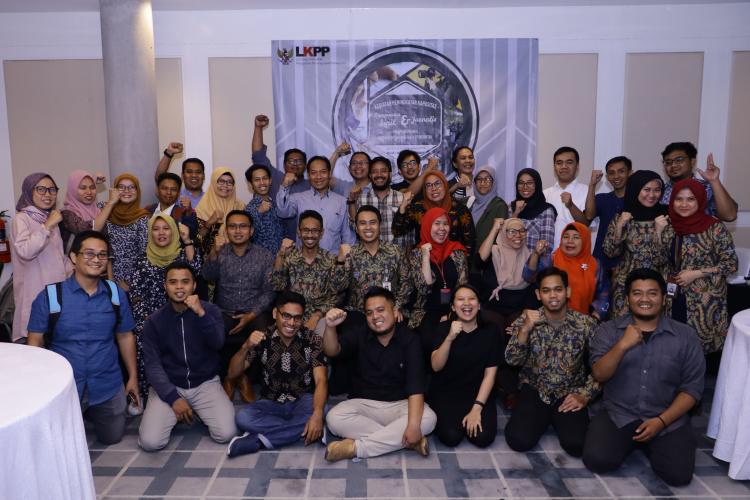Monitoring Government’s Procurement Projects with OpenTender

On 25 June 2018, the Coordinating Ministry of Political, Law and Human Rights inaugurated their newly renovated media center. The building now has several floors and additional workspace for the Illegal Levy Eradication Task Force and special bureau for Papua.
The tender process for the building renovation project began in September 2017. The contract value of the project was IDR 2.248 billion or around USD 166 thousand at that time. The Ministry only saved IDR 38 million or approximately USD 2,000 from its budget to implement the renovation project.
There were 36 companies participating in the project tender. However, based on the tender evaluation posted on the Ministry Electronic Procurement Service website, there were only two companies submitted the bidding documents. The Ministry selected PT. Imada Jaya as the project winner as it had successfully met the requirements on the project administrative, technical and cost. The Ministry did not choose the other bidder due to its lack of experience.
Based on the Indonesia Corruption Watch (ICW) analysis with OpenTender.net, the media center renovation received a score of 18. It means that the project was prone to irregular practices that is prone to misconduct or corruption due to the lack of efficiency and public participation. It also had a high potential for monopolistic practices.
Equipped with those basic findings, a number of Civil Society Organizations (CSOs) representatives decided to examine the project further. The CSO representatives were participants of the Public Procurement Monitoring Training for Civil Society and Journalists organized by ICW and the National Public Procurement Agency (NPPA) in Jakarta on 5-6 November 2019.
Based on the group’s examination using the OpenTender.net, PT. Imada Jaya has won the government project for 12 times. After further analysis, the group did not find the name of the company in the public procurement vendor blacklist. The company is a member of the Construction Company Association. However, the group was unable to find the name of the director and the location of the company. "After searching for the address [via Google Street View], we didn't find the office but a construction material shop and a warteg, traditional food diner, next to it. Further verification and direct investigation are required," said one of the group members.
Strengthening public participation
There are many corruption cases in public procurement sector in Indonesia. Data published by ICW revealed that, on average, 40 percent of corruption cases are procurement cases.
The Head of NPPA Roni Dwi Susanto stated that there are also many deviation practices in the procurement process, from planning to contract implementation. Unfortunately, the Agency cannot to do much. It has limited human resources to oversee the entire public procurement process throughout the country. Moreover, the NPPA does not have the authority to intervene in the planning process to prevent bad things from happening in the future. Even if the NPPA find irregularities, the Agency has no power to report their findings to law enforcement officers but the Government Internal Supervisory Apparatus.
Roni said, the NPPA needs public assistance, including from civil society and journalists, to monitor the government's procurement projects to stop deviation and corruption. Public participation in overseeing the projects is important since it will affect the quality of public service delivery.
The public procurement monitoring training was conducted as an effort to increase CSO and journalists oversight in the country. It was the fifth training the two organizations organize together and attended by more than 70 journalists and CSO representatives from all over Indonesia.
The training received positive feedbacks from the participants. They now understand that overseeing the government’s procurement project can prevent corruption and ensure that the state budget derived from citizen taxes is used efficiently and effectively to fulfill the needs and improve the quality of the citizens. They also hope that the NPPA and ICW could provide similar training to more people at the local level. (*)










